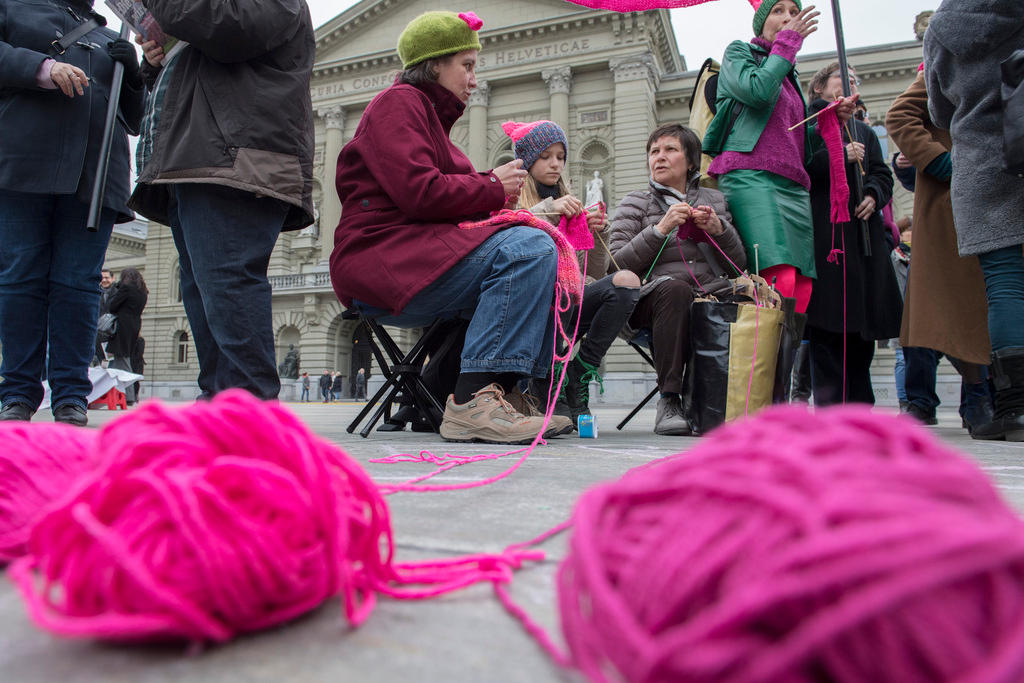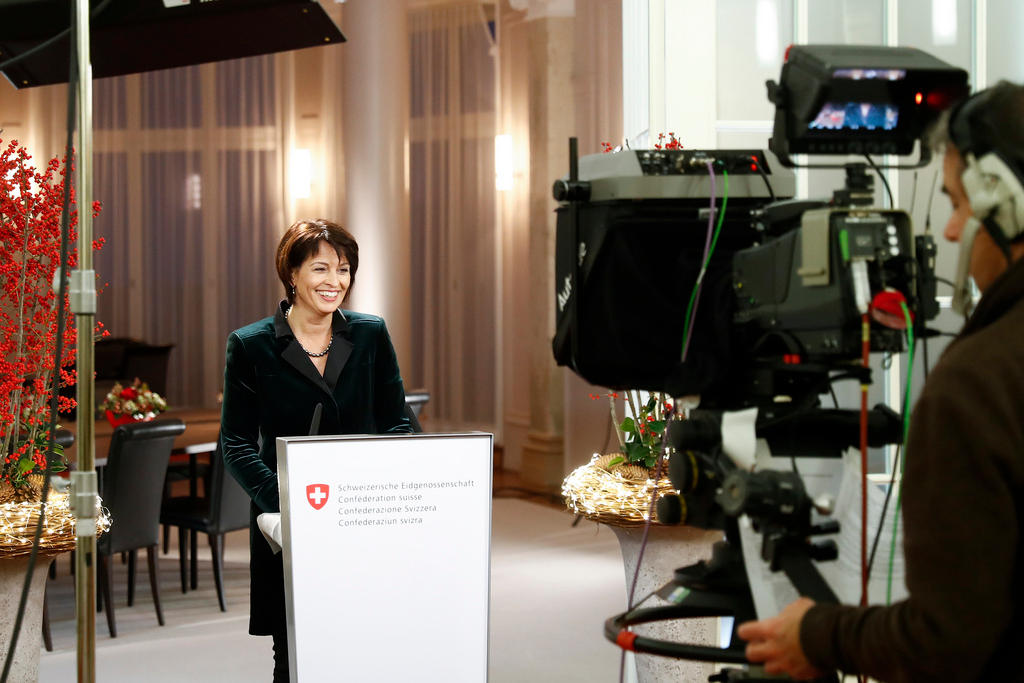‘Americans of color have different experiences in Switzerland’
In the following article, Julia Feliz of Solidarity for Humanity appeals to Americans in Switzerland to support efforts to fight racism, anti-Islam sentiment, and homophobia in the US, which she says helped Donald Trump become president.
She writes in response to an Op-Ed by fellow American in Switzerland, Alexandra Dufresne, ‘An expat’s 10 step guide to political engagement“.
It is important that activism being done by those of us abroad be intersectional. It’s important that white immigrants understand that US Americans of color have different experiences in Switzerland, as well as concerns for friends and family back home, which means we can’t choose not to follow what is happening since a lot of what is occurring directly affects our families, friends, and ourselves. It is important that we don’t ignore their voices, experiences, and needs.
It’s important that Americans in Switzerland recognize their privilege over marginalized groups in their experiences and ability to choose not to be involved in issues that do not affect them but that have been major issues for those back home for years, which has now openly culminated in the mess we are dealing with right now. Americans of color and other Americans that belong to other targeted groups have been fighting these issues for a long time. Becoming aware of these issues after the last election is privilege, and this must be recognized if we are to truly become engaged.
Stance of privilege
I have read too many Americans abroad proclaim that this is not the time to discuss racism or homophobia or anything other than get rid of Trump, when all these issues are related to one another and how he rose to power. It is a stance of privilege to be able to proclaim that we all ignore the very issues that helped him because they do not affect many abroad.

It is hard work, but we need everyone’s voices now more than ever. It can sometimes feel like we can’t do much or that it is easier to disconnect, but those back home need our involvement.
The good thing is that we don’t have to start from scratch. We can simply be there to lift the voices of marginalized communities and follow their lead or simply support them by taking the time to educate ourselves about issues such as racism, islamophobia, transphobia, etc. and above all, listen, as well as learn about the demands that targeted and marginalized groups make about their fight for equality and their rights.
Virtual activism
This is what we try to do at Solidarity for Humanity. For example, we have a workshop coming up about learning about racismExternal link and what that means in the US and in Switzerland. Another example: our last event focused on uplifting Native American voices during their march on DC through simple virtual activism to give them more visibility within our community of friends and family.
In many countries around the world, US citizens are working to help with what is happening back home, and because we are small grassroots groups, involvement could be as easy as taking part in the events we plan or offering time to help support those efforts. Many of us don’t live near one another, so it’s not necessary to be in the same city or town.
What is most important is recognizing that we all need to step outside of our comfort zones because this is not going away anytime soon. Self-care is important, yes, but this is the time to be involved and find guidance and support in groups like ours if that helps lessen our anxiety or feelings of being overwhelmed. We also do not do justice to communities back home by choosing single issues since all social justice movements are interconnected. Many people will be affected by more than one thing, so we can work towards all by simply supporting communities directly and listening to what their needs are.
Apart from contacting our elective representatives each day or week, the role that Americans abroad can take is using their social media and conversations about events to educate others locally and back home (friends and family) on how to get involved themselves, especially if they are in a position of privilege. Being aware of all these issues back home will also make it easier to take action at a local level as well, especially with the possibility of the chaos spilling over in Europe. These are just some basic ways to start and continue to be involved.
The views expressed in this article are solely those of the author, and do not necessarily reflect those of swissinfo.ch.
swissinfo.ch publishes op-ed articles by contributors writing on a wide range of topics – Swiss issues or those that impact Switzerland. The selection of articles presents a diversity of opinions designed to enrich the debate on the issues discussed.

In compliance with the JTI standards
More: SWI swissinfo.ch certified by the Journalism Trust Initiative




You can find an overview of ongoing debates with our journalists here. Please join us!
If you want to start a conversation about a topic raised in this article or want to report factual errors, email us at english@swissinfo.ch.